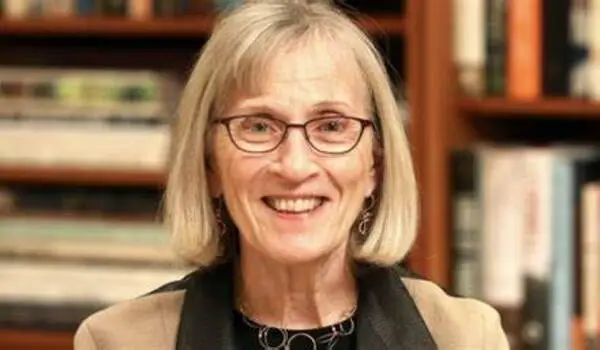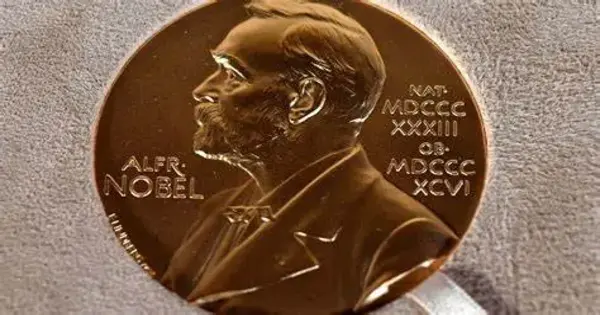Claudia Goldin, a Harvard professor, was awarded the Nobel Memorial Prize in Economic Sciences on Monday for increasing the world’s knowledge of women’s advancement in the labor market.
She is the third woman to receive the Nobel Prize in Economics, which was first awarded in 1969, and the first to receive it solely rather than jointly. Her investigation found the causes of gender disparities in labor force participation and pay. She is the third woman to get the award.
Dr. Goldin, 77, has long been a trailblazer in the area; in 1989, she became the first woman to be awarded tenure in Harvard’s economics department. Her extensive research has looked into the origins of the gender wage gap, the evolution of women’s labor-force involvement over the last 200 years, and the implications for the labor force’s future.
Claudia has been a source of inspiration to many women in economics, generously sharing her experiences and demonstrating the possibilities of success in a mostly male-dominated world. Her investigation found the causes of gender disparities in labor force participation and pay. She is the third woman to get the award.
Dr. Olivetti
Why did the committee say she received the prize?
The Nobel committee announced the award in Stockholm, citing Dr. Goldin’s research on female employment, which revealed that employment among married women fell in the 1800s as the economy shifted away from agriculture and toward industry. Women’s engagement then surged in the 1900s as the service sector expanded as an economic sector.
Dr. Goldin has described the 1970s as a “revolutionary” period in which women in the United States began to marry later, make significant advances in higher education, and achieve significant gains in the labor market. Birth control pills became more easily available in those years, taking away what Dr. Goldin has called a “potent” reason for early marriage — and giving women more time to form identities outside of the home.
Dr. Goldin also demonstrated how the approach of reducing the gender wage gap has been inconsistent throughout time. Recently, progress toward closing it has slowed: now, women in the United States earn slightly more than 80 cents for every dollar earned by men.
Previously, gender income disparities could be explained by education and occupation. However, Dr. Goldin has demonstrated that the majority of the wage disparity currently exists between men and women working in the same jobs, according to the Nobel committee. Notably, it begins once a woman’s first kid is born.
In a 15-year study of business school students at the University of Chicago, for instance, Goldin and her colleagues found in one paper that the gap in pay started to widen a year or two after a woman had her first baby.

What did she say about winning the prize?
Dr. Goldin stated in an interview that she hoped people would take away from her work the importance of long-term shifts in understanding the job market.
“We see a residue of history around us,” she added, explaining that the societal and family systems in which women and men grow up impact their behavior and economic consequences. “We’ll never have gender equality unless we also have couple equity,” she remarked. While there has been “monumental progressive change,” there remain “important differences” that frequently point to women performing more housework.
Dr. Goldin received his Ph.D. in economics from the University of Chicago. She frequently collaborates on articles with her husband, Lawrence Katz, a Harvard University economist. She was sound asleep when she received the call alerting her of the win; she had gotten up earlier to let the dog out but had returned to bed. She described herself as “delighted.”
When asked what it meant for a woman to win the economics award on her own, Dr. Goldin said it was a type of “culmination” following years of “important changes” toward more gender diversity in the field.
What do her colleagues say about her?
Claudia Olivetti of Dartmouth, a co-author of Dr. Goldin’s, said that Dr. Goldin’s work has “shaped much of the current research on women and labor markets.” She pointed out that it continues to today: Dr. Goldin has just released a new working paper on why women made such great advances in the 1970s, and why that progress has hit roadblocks in the years since.
Dr. Goldin has also been an important mentor to many women entering the field of economics, she said.
“Claudia has been a source of inspiration to many women in economics, generously sharing her experiences and demonstrating the possibilities of success in a mostly male-dominated world,” Dr. Olivetti added in a follow-up email. Dr. Goldin’s work has had a “profound” influence on labor economics, according to Leah Boustan, a Princeton professor who was previously a student of hers.
“The first thing I thought about when Claudia won was how much her research is still inspiring current work,” she said, adding that her students are still investigating how marriage, contraception, and labor market decisions have intersected through time.
















